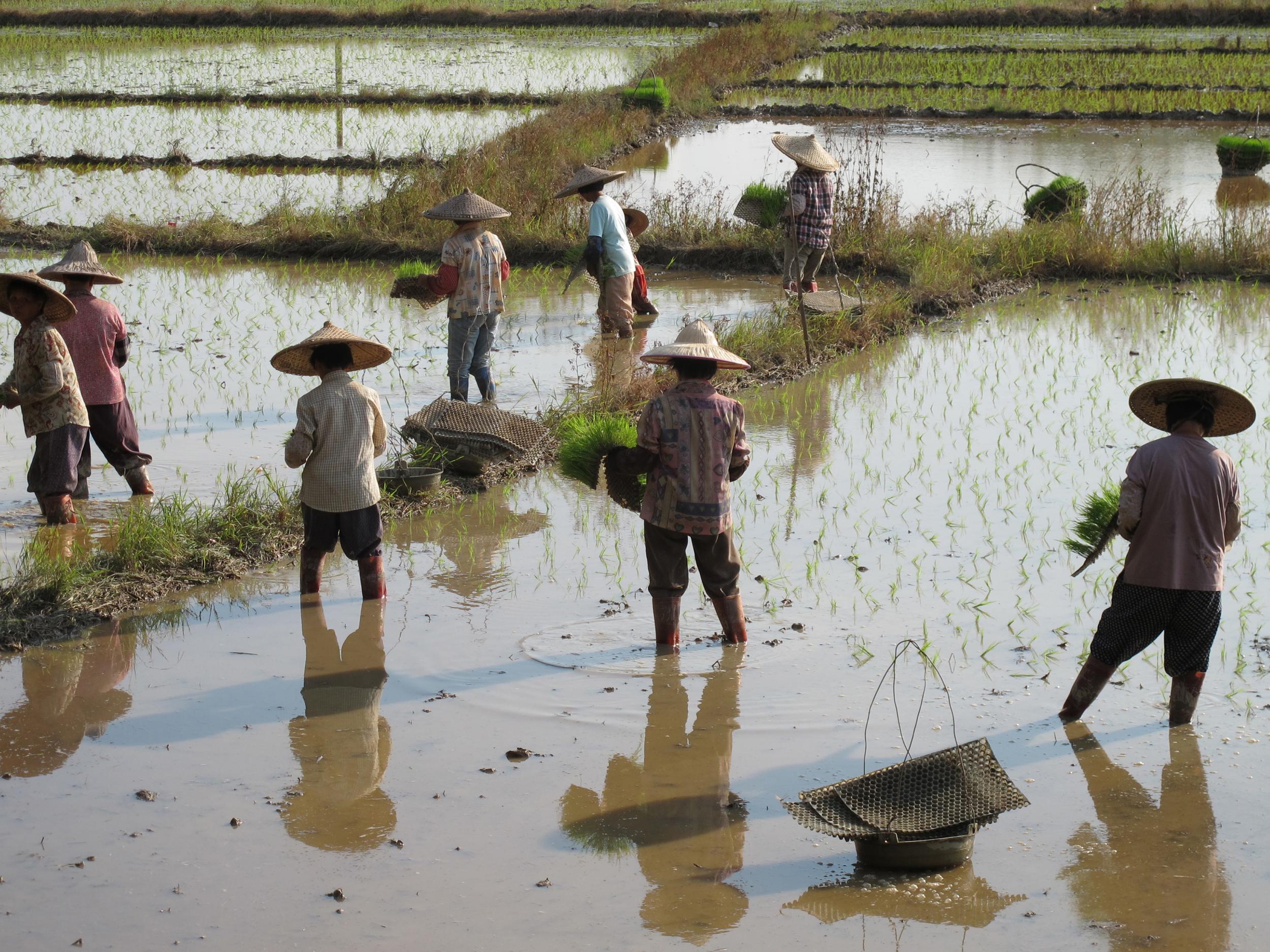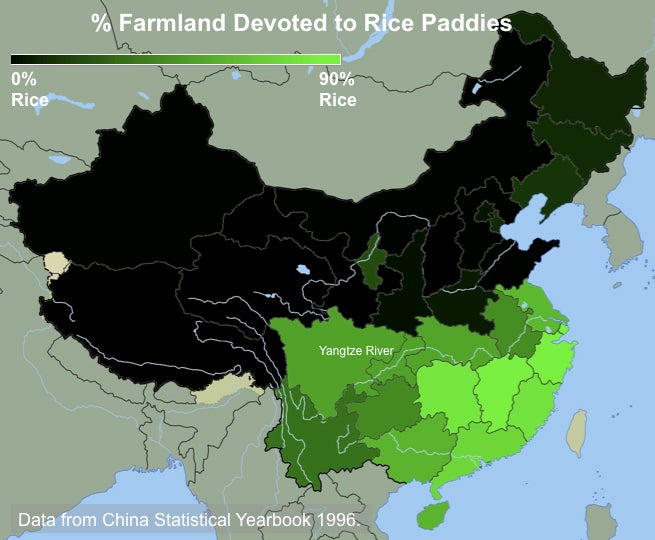Behaviour of Chinese people in coffee shops dictated by what their ancestors farmed, scientists claim
Social experiments conducted in coffee shops across China reveal fundamental differences, which researchers think result from whether areas were traditionally devoted to rice or wheat farming

Your support helps us to tell the story
From reproductive rights to climate change to Big Tech, The Independent is on the ground when the story is developing. Whether it's investigating the financials of Elon Musk's pro-Trump PAC or producing our latest documentary, 'The A Word', which shines a light on the American women fighting for reproductive rights, we know how important it is to parse out the facts from the messaging.
At such a critical moment in US history, we need reporters on the ground. Your donation allows us to keep sending journalists to speak to both sides of the story.
The Independent is trusted by Americans across the entire political spectrum. And unlike many other quality news outlets, we choose not to lock Americans out of our reporting and analysis with paywalls. We believe quality journalism should be available to everyone, paid for by those who can afford it.
Your support makes all the difference.Moving chairs around in Starbucks has allowed scientists to uncover a fundamental divide in Chinese society, according to new research.
Different parts of China have historically farmed either rice or wheat – crops that lead to very different lifestyles.
While rice requires farmers to work together to look after paddy fields, wheat farmers tend to be more solitary.
Researchers based at American and Chinese universities conducted social experiments in coffee shops across the nation in order to gauge whether the ancestral practices of different populations continue to pervade society.
They found that in southern China, where rice farming has traditionally dominated, people were more social and less individualistic.
Northern Chinese people, they observed, were more likely to strike out by themselves.
The scientists nonethelss emphasised that these behaviours were being demonstrated by urban, Starbucks-drinking people, who in all likelihood were not involved in farming at all.

In order to demonstrate this, they began by simply observing people in cafes across five different cities, and found that out of nearly 9,000 individuals observed, customers in rice-growing regions were less likely to sit alone.
Next, they actively moved chairs so they blocked the paths of people in the coffee shops.
“All told, we inconvenienced about 678 people in Starbucks around China,” said Professor Thomas Talhelm, a behavioural scientist at the University of Chicago Booth School of Business.
The point of this exercise was to test how people responded to a challenging situation. The researchers observed that three times as many people from wheat-growing regions actively took control and moved the chair, rather than trying to squeeze past it.

“These findings suggest that China’s agricultural legacy has given northern and southern China different cultures. And remember that the people in the study were not farmers,” said Professor Talhelm.
“This suggests that China’s agricultural legacies continue to shape people’s behaviour in the modern day, even among people who have left farming behind and live in modern cities and shop at Starbucks.”
The research challenges current theories about Chinese culture today, which hold that the major divide in modern Chinese society is between the poor, rural population and wealthier, urban population.
Instead, the research team suggested that in fact the central divide may go back further, to farming practices that have dominated different regions for centuries.
It also goes against the prevailing “modernisation theory” of culture, which suggests that as countries become wealthy and urbanised, people in those cultures become more individualistic and more Western.
Southern cities like Shanghai and Hong Kong are some of the most wealthy and modern places in China, but the scientists behind the study – published in the journal Science Advances – suggest their rice-farming past has made them less individualistic, not more.
Dr Talhelm and his colleagues are now undertaking a similar experiment in India – another large country dominated by a rice-wheat divide. He suggests that similar historical divides might be found across other modern societies.
“People’s farming legacies seemed to be more important than GDP in explaining their everyday behaviour,” said Professor Talhelm. “Simply put, being wealthy does not inevitably make people behave like Americans.”
Join our commenting forum
Join thought-provoking conversations, follow other Independent readers and see their replies
Comments